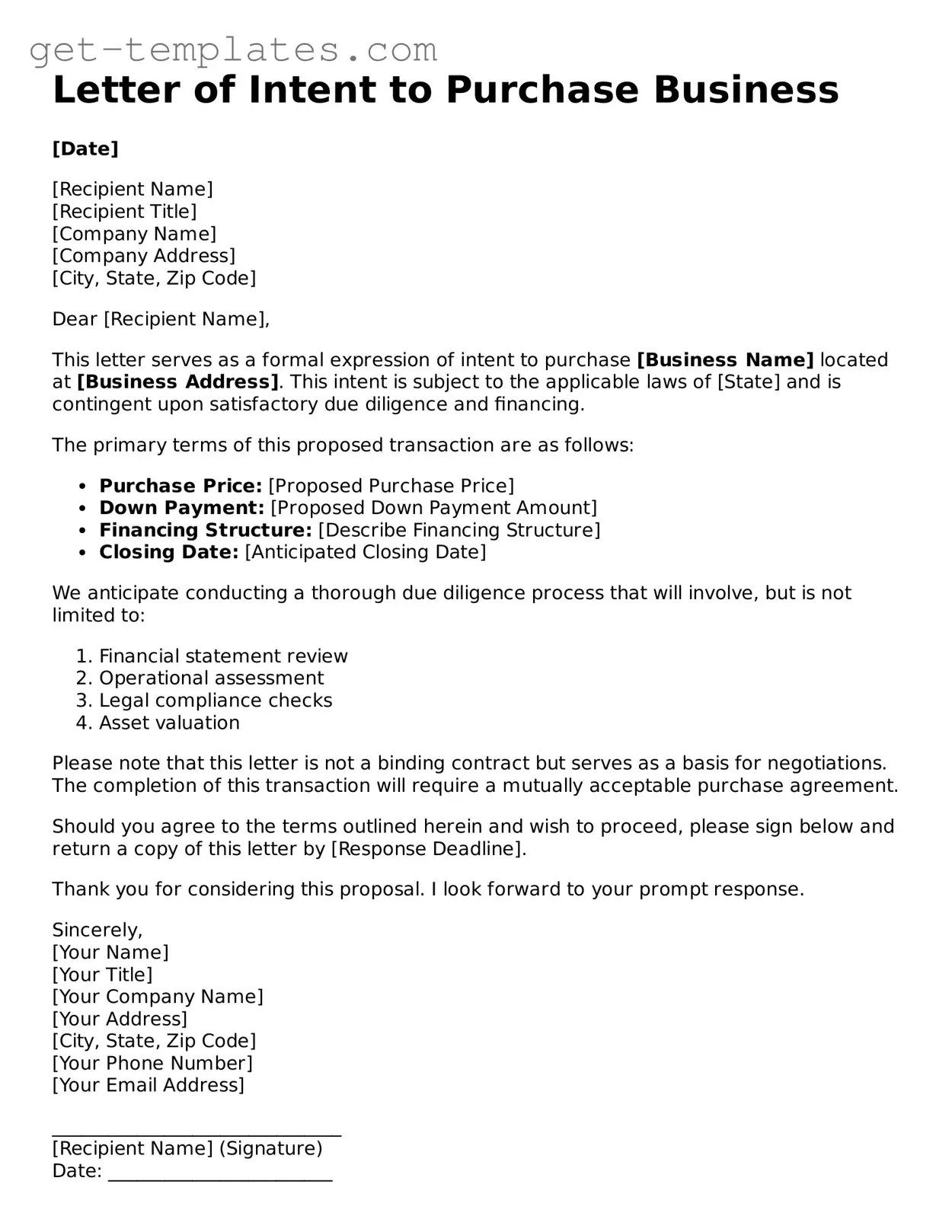Attorney-Approved Letter of Intent to Purchase Business Form
A Letter of Intent to Purchase Business is a document that outlines the preliminary agreement between a buyer and seller regarding the potential purchase of a business. This form serves as a foundation for negotiations, detailing key terms and conditions before a formal purchase agreement is finalized. By establishing mutual understanding, it helps both parties navigate the complexities of the transaction.
Get Document Online

Attorney-Approved Letter of Intent to Purchase Business Form
Get Document Online
You’re halfway through — finish the form
Finish Letter of Intent to Purchase Business online — edit, save, download made easy.
Get Document Online
or
⇓ PDF Form
